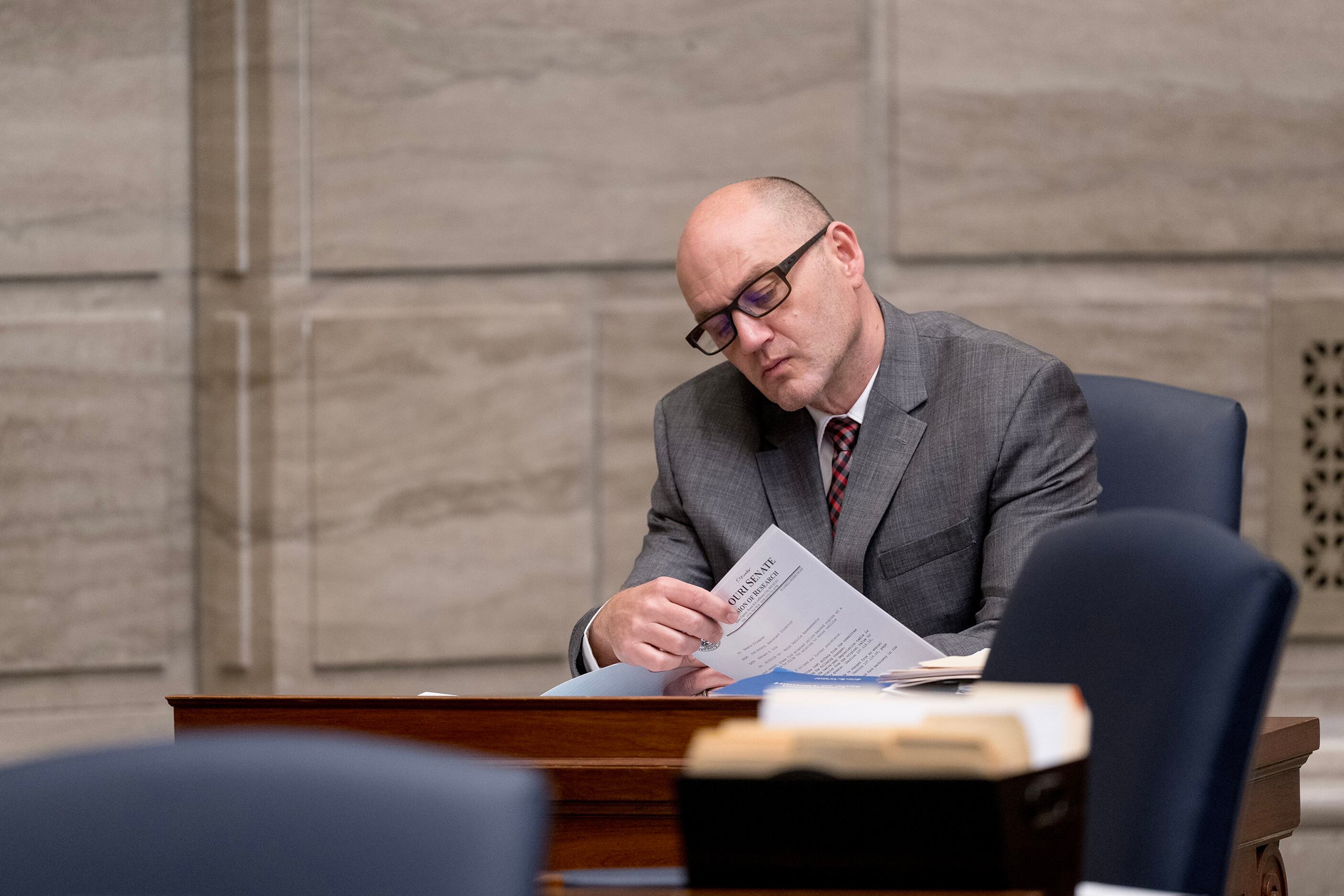This news analysis originally appeared in Votebeat’s free weekly newsletter. Sign up to get future editions, including the latest reporting from Votebeat bureaus and curated news from other publications, delivered to your inbox every Saturday.
The Republican campaigns for the Missouri secretary of state primary garnered quite a lot of national attention: One of the candidates (previously known for being a MAGA rap artist) sparked outcry from, well, a slew of different groups after she called Juneteenth a “ratchet” holiday and advised Americans in general not to be “so weak and gay.” In a sprawling field of eight candidates, she came in sixth.
The hubbub has meant that only local Missouri news outlets have really covered the winner: state Sen. Denny Hoskins, whose proposed policies would radically change the way Missourians cast their ballot.
Hoskins wants to get rid of voting machines entirely and hand-count all ballots. That’s a particular problem in Missouri, where a county can’t buy voting machines until the secretary of state certifies them. In theory, if he wins, he could unilaterally decertify every machine in the state, leaving municipalities to count ballots by hand.
Votebeat has covered — across multiple states and counties — the flaws of hand-counting ballots. For some local perspective on how much this would shift the workings of a Missouri elections office, I chatted with Brianna Lennon, the clerk in Boone County.
Long story short: It would be a monumental, probably impossible task.
Let’s take the recent primary as an example. There were about 30,000 ballots cast in Boone County — pretty low turnout, about 24%. It was a double-sided ballot that called for voters to make a number of selections. With all the local races and other requirements for language and access, there were 100 different ballot types — times four, since there were versions for each of four parties.
“The only reason we were able to accomplish that in a meaningful way is that we have just invested in ballot-on-demand printers,” Lennon said. “Even before you get to hand counting you have to be able to hand out the ballots to voters, and asking the judges at our central polling place to hand out 400 different ballot styles would have been impossible.”
But let’s pretend Lennon figured out how to do that, and then the county had 30,000 completed ballots sitting there in front of them, waiting to be counted.
“Hand counting would very likely mean that we would have to plan for a very extended post-election process,” she said. “We have two weeks under law to certify election results, and I think we would use up nearly the entire two weeks just doing the initial hand count.”
Then there are accuracy checks to be done, which would push the county beyond the deadline. All of this means getting it done on election night, as Hoskins insists is possible, is a pipe dream.
Hand-counting also requires significantly more people. In Gillespie County, Texas — which is smaller than Boone County — it took more than 200 volunteers 21 hours to hand-count a recent primary in which just over 8,000 ballots were cast. They did it in a winery, because there wasn’t enough floor space available anywhere else. Lennon doesn’t know where she’d find space, either.
Right now, Lennon recruits about 225 volunteers — a pretty big task as Missouri law requires poll workers to work in bipartisan teams. Given how difficult it is for Lennon to recruit Republicans (Boone is among the state’s few majority-Democratic counties), Lennon calls recruiting enough poll workers a “real crisis” as it is.
Her office has only eight full-time staff, and she says the expectation that they train and supervise the sheer number of people hand-counting ballots would take is “really overwhelming.”
But again, that was a low-turnout primary. In a general election, Lennon would probably have more than double that number of ballots on her hands.
Still, that’s not all Hoskins wants to do. He’d like to ban drop boxes, and he’d like to mandate precinct voting — that is, no absentee or mail voting — and for all of that voting to take place in a single day. All of these things, needless to say, would put in doubt the state’s ability to hold any elections at all.
The victor in the Democratic primary, Barbara Phifer, ran on a platform of ensuring fair elections and protecting public libraries. She will have a tough time winning in a predominantly Republican state. The current secretary of state, Republican Jay Ashcroft, won reelection in 2020 with more than 60% of the vote, and was initially elected in 2016 with nearly the same percentage.
Jessica Huseman is Votebeat’s editorial director and is based in Dallas. Contact Jessica at jhuseman@votebeat.org.



